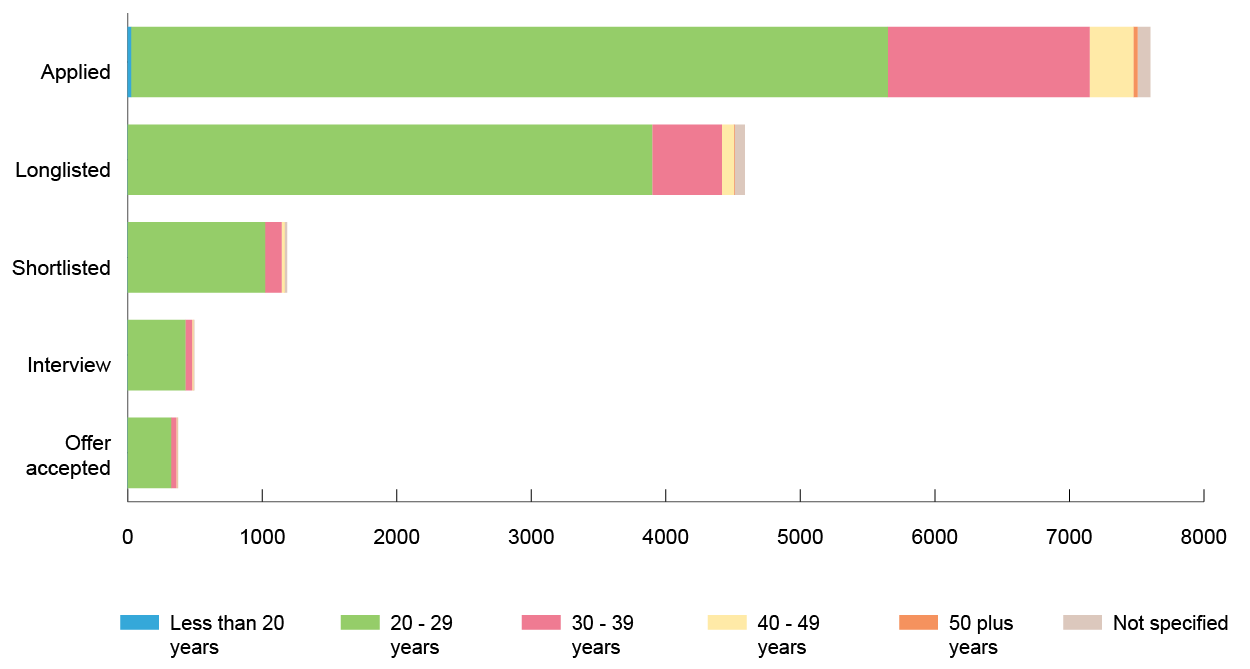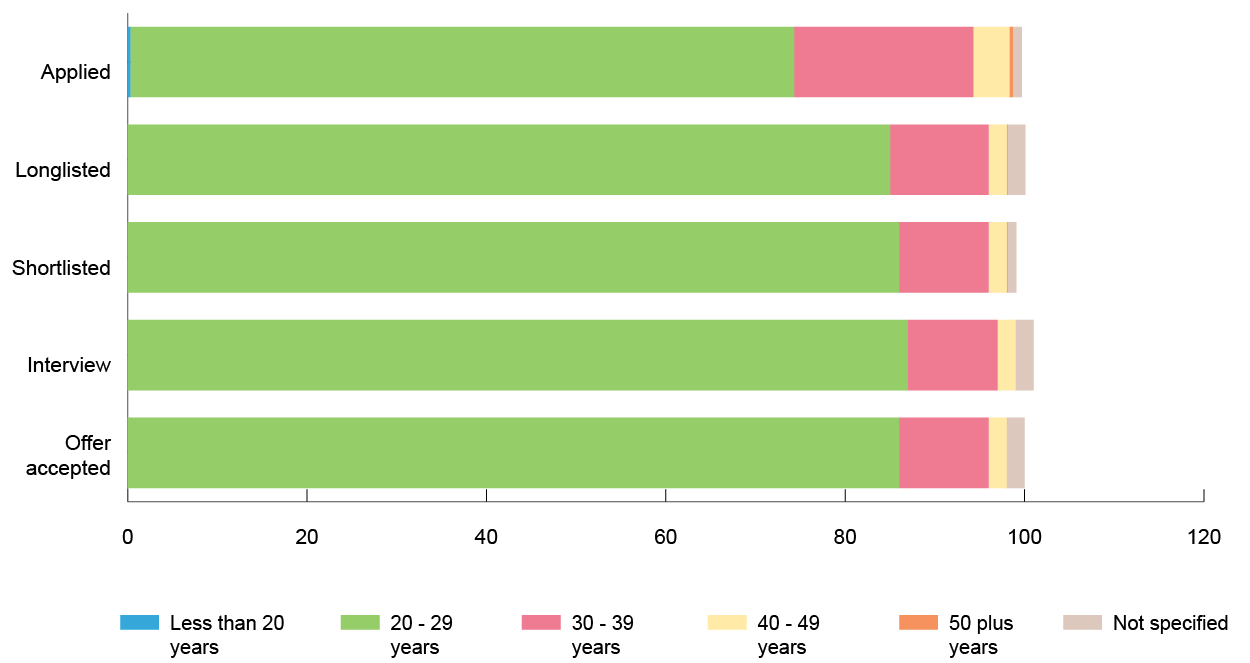About the stages of recruitment
Scientist Training Programme (STP) applications are processed through 4 stages of recruitment. To understand the data in context we have provided details below the graphs of what applicant data is available at each stage.
All stages of the recruitment process are implemented and managed by the School with standardisation and fairness as a top priority. The roles of shortlisters and interviewers are largely undertaken by volunteer scientists from the training departments and are supported by School staff.
Applicants age numbers

Graph data
| Applied | Longlisted | Shortlisted | Interview | Offer accepted | |
| Less than 20 years | 25 | ≤5 | ≤5 | ≤5 | ≤5 |
| 20 to 29 years | 5625 | 3899 | 1022 | 429 | 322 |
| 30 to 39 years | 1500 | 517 | 121 | 49 | 39 |
| 40 to 49 years | 325 | 89 | 24 | 9 | 7 |
| 50 plus years | 33 | 6 | ≤5 | ≤5 | ≤5 |
| Not specified | 93 | 77 | 17 | 8 | 6 |
Applicants age percentages

Graph data
| Applied | Longlisted | Shortlisted | Interview | Offer accepted | |
| Less than 20 years | ≤5% | ≤5% | ≤5% | ≤5% | ≤5% |
| 20 to 29 years | 74% | 85% | 86% | 87% | 86% |
| 30 to 39 years | 20% | 11% | 10% | 10% | 10% |
| 40 to 49 years | ≤5% | ≤5% | ≤5% | ≤5% | ≤5% |
| 50 plus years | ≤5% | ≤5% | ≤5% | ≤5% | ≤5% |
| Not specified | ≤5% | ≤5% | ≤5% | ≤5% | ≤5% |